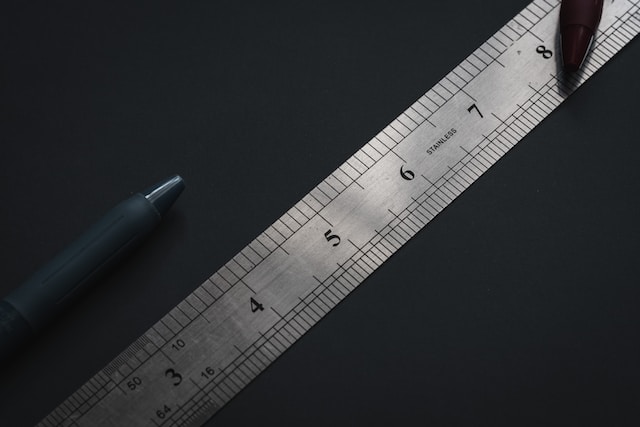So how are you all? It’s time for exams. So pick up your books and start learning. I know a few topics are difficult to understand, don’t worry we are here to explain. Today, among all those topics we are going to discuss one such topic in which we will see the difference between measurement and evaluation.
So are you guys ready to start the journey? So let’s get started with the basic introduction of measurement and evaluation.
What is Measurement?

Measurement is the process of quantifying or assigning a numerical value to a property or attribute of an object, event, or phenomenon. It is an essential aspect of human understanding and interaction with the physical world, providing a standardized way to express quantities and compare them. Measurements are crucial in various fields, including science, engineering, commerce, and everyday life.
In scientific terms, measurement involves the comparison of an unknown quantity to a standard unit. This standardization allows for precision and accuracy in communication. For example, length can be measured using a ruler calibrated in meters or feet. The choice of unit depends on the context and the scale of the measurement.
Objective of Measurement
Measurement serves several purposes, including quantifying physical properties, facilitating communication, and supporting scientific investigations. In science, accurate measurements are fundamental to developing and validating theories. The precision of measurements can influence the reliability of experimental results and the conclusions drawn from them.
Types of Measurement
Different types of measurements exist, such as direct and indirect measurements.
- Direct measurements involve assessing a property without relying on other variables
- Indirect measurements derive values through mathematical relationships with other observed quantities.
Both types play roles in diverse scientific endeavors, from physics and chemistry to biology and astronomy.
The history of measurement is rich and diverse, with various cultures developing their systems before the standardization of units. The International System of Units (SI) now provides a globally accepted framework, ensuring consistency and coherence in measurements worldwide.
Seven Base Units of Measurement
| Name | Symbol | Quantity |
| Kilogram | Kg | Mass |
| Mole | mol | Amount of substance |
| Kelvin | K | Thermodynamic temperature |
| Ampere | A | Current |
| Metre | m | Length |
| Candela | cd | Luminous intensity |
| Second | s | Time |
What is Evaluation?

Evaluation is a systematic process of assessing, appraising, or examining something to determine its value, significance, or quality. It is a critical aspect of various fields, including education, business, healthcare, and research. The primary purpose of evaluation is to provide valuable insights that can inform decision-making, improve performance, and enhance overall effectiveness.
Evaluation plays an important role in different sectors like education, business, healthcare, and research. To know this in a little more depth, read the points given below.
Education:
In education, evaluation plays a crucial role in gauging the success of teaching methods, curriculum, and student learning outcomes. Educators use assessments and tests to evaluate student’s comprehension and retention of knowledge. This information helps them adjust instructional strategies to meet the diverse needs of learners.
Business:
Businesses often employ evaluation to measure the performance of employees, products, or processes. Performance evaluations contribute to employee development, identify areas for improvement, and inform decisions related to promotions or incentives. Product evaluations assess the quality, functionality, and market reception of goods or services, guiding companies in refining their offerings.
Healthcare:
In healthcare, evaluation is fundamental to assessing the effectiveness of treatments, interventions, and healthcare programs. Clinical trials, patient surveys, and outcome assessments contribute to evidence-based practices, ensuring that healthcare professionals can provide the best possible care.
Research:
Research projects undergo rigorous evaluation to validate the methodology, results, and overall contribution to knowledge. Peer review processes and systematic assessments help maintain the integrity and reliability of scientific endeavors.
Methods for Evaluation:
Evaluation = Quantitative description + Qualitative Description + Value Judgement
These methods are often employed to ensure a comprehensive understanding of the subject under evaluation.
The results of evaluations serve as a basis for decision-making, continuous improvement, and accountability. Whether in education, business, healthcare, or research, effective evaluation processes contribute to the growth and success of individuals, organizations, and society as a whole.
Difference between Measurement and Evaluation
| Measurement | Evaluation |
| Measurement can be comprehended as the process of deciding the features and proportions of an entity. | On the other hand, evaluation is a continuous method of calculating and allocating qualitative meaning, by handling value reviews |
| Measurement reports for the compliances that can be represented numerically, i.e. quantitative statements. | The evaluation contains both quantitative and qualitative statements. |
| Measurement entails the study of numerals for the individual or thing as per specific rules. | Evaluation involves the assignment of grades, levels, or symbols according to established standards. |
| While measurement concentrates on one or more characteristics or attributes of an individual or thing. | The evaluation protects all the factors including mind, affective, and psychomotor education. |
| Measurement investigates how considerably, how elevated, how quick, how hot, how distant, or how small something is, and that too in numerical representations. | In contrast, evaluation responds to how nicely something is which is accomplished by adding meaning or value appraisal to the measurement. |
| With measurement, one cannot make rational beliefs about the learner. | In the case of evaluation, one can make reasonable assumptions about the learner. |
| Measurement consumes shorter time and energy as it uses instruments or measuring gadgets, to serve the goal. | Against, evaluation needs statement and it passes value judgment, which consumes span and energy. |
| When it comes to scope, measurement has a narrow scope because it takes into account only some dimensions of character or quality. | However, evaluation covers all the proportions before handing value judgment. Moreover, the evaluation includes measurement. Hence, its scope is wider. |
| Measurement is content-oriented | Whereas, evaluation is objective-oriented. |
Conclusion
In the above editorial, we learned about the difference between measurement and learning. I hope everyone understands this concept. The concept of evaluation tells us that it is an integral part of the educational system and measurement is also a part of it.
It helps in enhancing the skills of learning and teaching, determining objectives, establishing enlightenment experiences, and evaluating the presentation of the learner.







